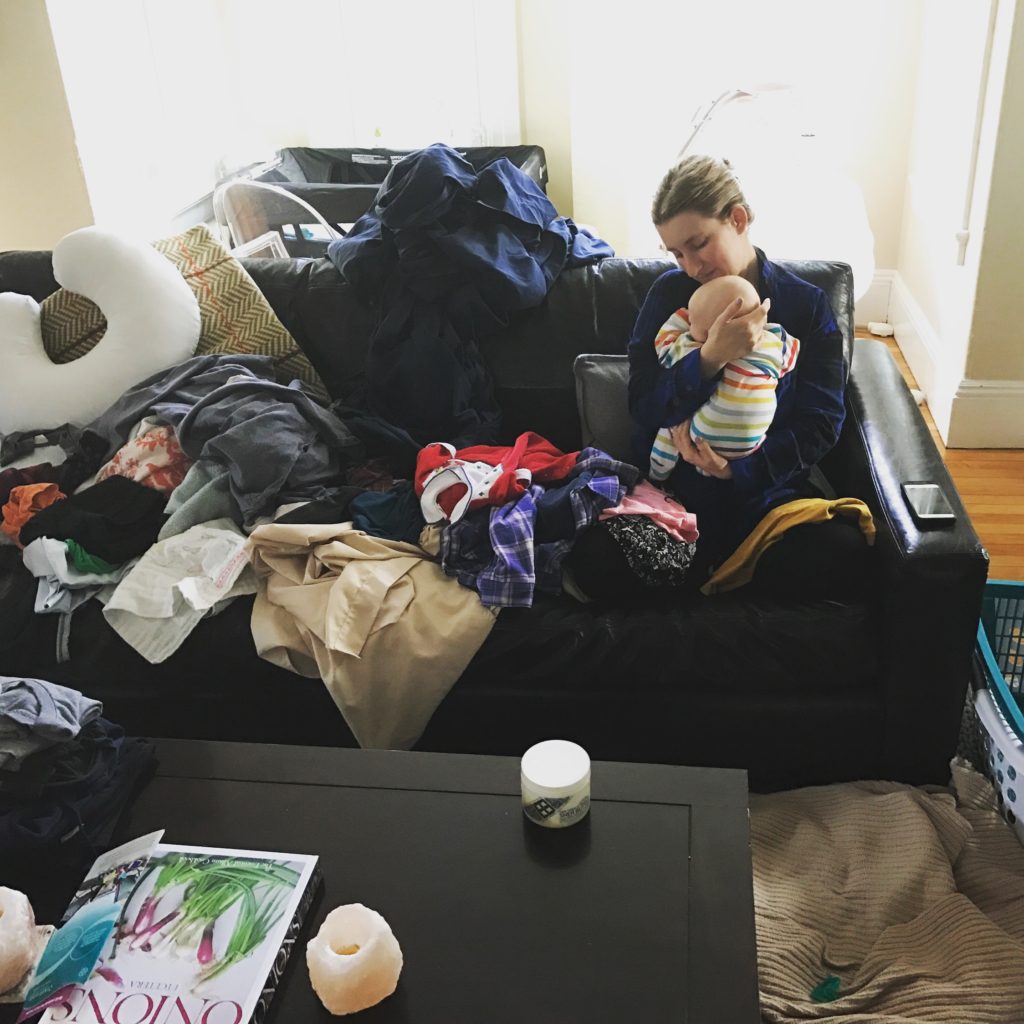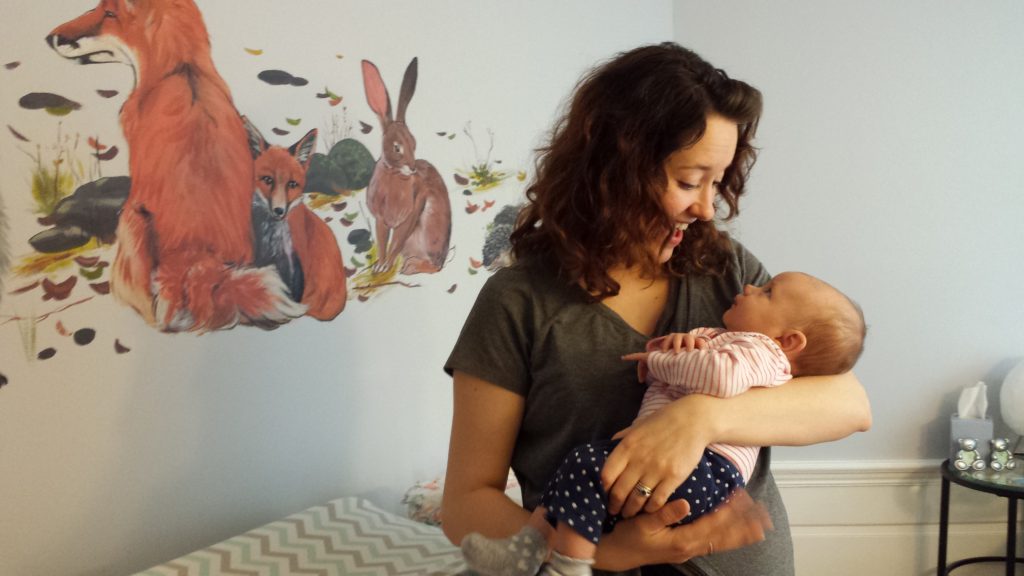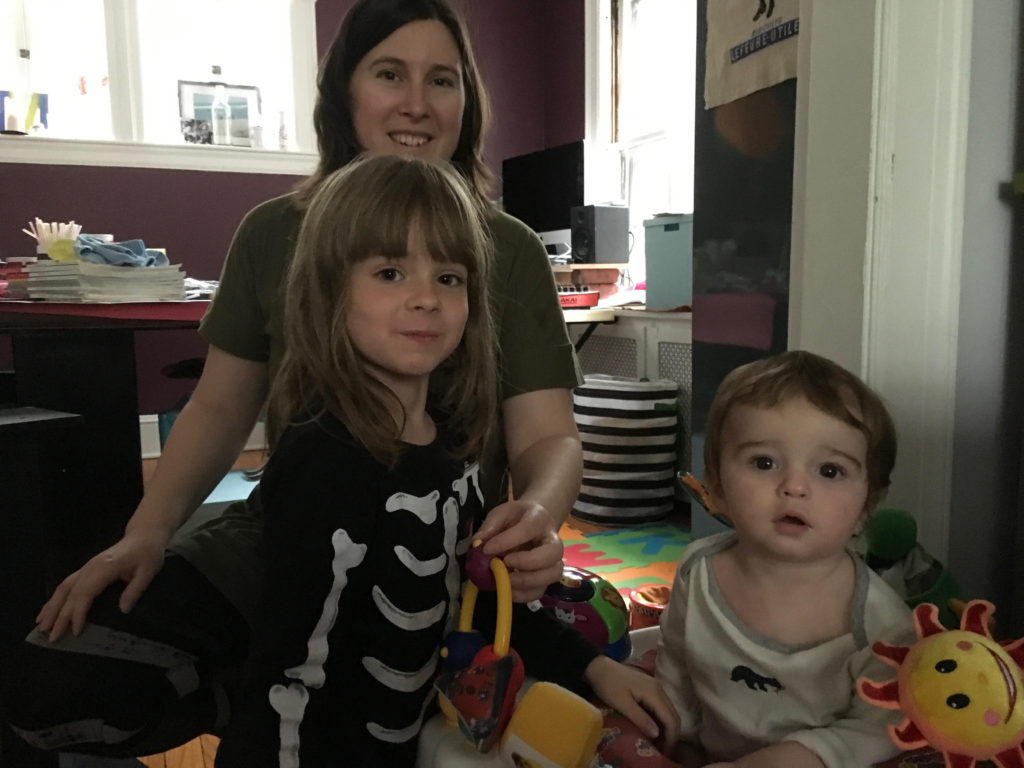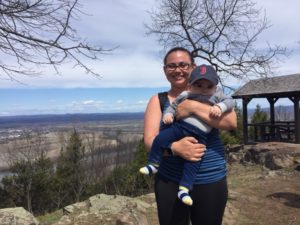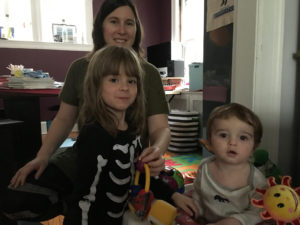Each week on Thursday afternoons is a Beyond Birth group in the little yellow house by Cooley-Dickinson Hospital. While my wife and I were on leave following the birth of our son, we tried to attend this group as often as we could.
The group welcomes parents of babies up to six months to share the triumphs and challenges of those exciting and very difficult first months of parenting.
Among the biggest surprises — both for my wife and myself — was how little we all know about the postpartum period. I had heard about postpartum depression, but had scarcely heard a thing about the hormone fluctuations, clogged milk ducts, breastfeeding latch challenges, effects of sleep deprivation, and many other health challenges that were coming up again and again from week to week.
According to a recent study published with the National Institutes of Health, few national statistics exist on postpartum health-care utilization or postpartum health problems encountered by new mothers. By contrast, the same study cited a high number of new mothers — about 84 percent — receive prenatal care starting in their first trimester.
Chatting over coffee this week with Ann Buscemi, the educator and mother of three (her children are now 42, 37, and 27) who facilitates the weekly group, she said the majority of what comes up at these meetings consists of what she calls “on-the-job training.”
Buscemi, who also teaches birthing classes at Cooley-Dickinson Hospital, said most expecting parents can’t begin to fathom what parenthood will be like.
“They can’t even hear about newborn care and breastfeeding because they are still trying to figure out how the baby gets out,” she said.
During the group, Buscemi strives to create an atmosphere of non-judgment, a space where it is safe to bring up any issue that goes along with parenting.
“There is no wrong, no right, no perfect,” she said of parenting. “It is learning to be comfortable.”
Below are some women from the group who agreed to speak with the Advocate about their own experience with the surprises that came up postpartum and how they dealt with those challenges. At the end of the story are additional resources for postpartum women.
Breastfeeding 101
Emmie Hukowicz, 34, of Hadley, had a long labor and eventually had to have a c-section.
“So that sucked, but afterwards the struggle was breastfeeding,” she said.
Hukowicz’s baby Justin was nine pounds eight ounces when he was born and dropped by more than a pound at his first weigh-in a few days later. Hukowicz was concerned because Justin wasn’t able to get a good latch on her breast.
Justin had a tongue-tie, a common affliction in which the strip of skin connecting the tongue to the bottom of the mouth is shorter than usual. The reason this can be problematic is it makes it difficult for the baby to get hold of the mother’s nipple and more painful for the mother when the baby does.
Hukowicz had the tongue-tie clipped by an ear, nose, and throat specialist at Baystate in Springfield. After getting it clipped, she saw lactation specialist Kate Bohne, who runs free lactation groups in the Valley and found it immensely helpful.
Bohne encouraged Hukowicz to change the way she was holding Justin as she fed him, and gave her more confidence that she was doing a good job. Even so, it took her about six weeks to get where she felt more comfortable with it.
“I think something you feel like should be a very natural thing is for the baby to just latch,” Hukowicz said. “I never thought there was going to be pain involved, and all of a sudden there were days I would sit and he would be latched and I would be crying because it hurt so bad.”
It was through Bohne’s group that Hukowicz learned about the Beyond Birth group with Buscemi. The lactation support was helpful, but the camaraderie of both groups was invaluable to Hukowicz for her mental health.
Going to the groups meant getting out of the house and seeing other people who could relate to what she was feeling. Her husband only got a short time off following Justin’s birth, and after he went back to work, it was just her and the baby.
“As excited as I was to have him, it is isolating to have him,” she said.
That was not what she had expected at the outset.
“I scoffed while I was pregnant about going to groups and becoming involved in the mothering community,” she said. “I definitely said that’s not me and I’m going to be fine on my own.”
Creating a community around parenting that she can see at groups or text message or Facebook with has helped her feel supported, she said.
Blood thicker than water
Jacqueline Tuttle, 30, lives in Sunderland. She had read up about labor and was sure she would be able to face labor without fear. She didn’t anticipate having what is called “back labor,” when the baby is head down as it should be, but facing towards the woman’s abdomen instead of toward the back.
Labor in this position is painful because the hard part of the baby’s skull lines up with the hard part of the woman’s tailbone.
After her daughter, Rinoa, was born, postpartum originally felt like no big deal. Rinoa was able to feed easily and Tuttle felt like she was recovering from the pain. She was discharged and went home and her mother had stocked the fridge. “Thank goodness,” she said.
But Tuttle did have a problem — she was still bleeding. She had a blood clot in her uterus that had to be passed.
Once it was identified, doctors gave her a pill to make her uterus contract. Tuttle was frightened that it was going to be extremely painful, but she slept through most of the process before passing the clot.
Tuttle didn’t realize that it was a problem, thinking that when you give birth you bleed. She said the ability to call her health care provider at any hour of the day was instrumental in finding out there was a problem.
“I think if I would have been in a different area maybe or had a different health care provide that didn’t have a way to call at any time, I think I would have been a lot sicker than I was,” she said. “I was losing a ton of blood.”
Tuttle believes that in the United States medical support for the postpartum period is insufficient.
“In this country we just do a six-week checkup and then that’s it,” she said. “It leaves something to be desired; it is not enough.”
She also thinks there should be more information about the health of the pelvic floor, the muscles and ligaments that support the uterus and other organs in the pelvic area.
Pelvic floor physical therapy is sometimes not covered by insurance, she said.
One strength of the region is the number of support groups in the area, Tuttle said. She said she has been to free group sessions with lactation consultants and values time spent at the Beyond Birth parenting group.
Hiring a doula was a good decision, too, she said. The doula not only answered health questions but was able to connect her with organizations and businesses focused on new parents in the Valley.
Second time’s the charm
Courtney Campbell spent the nine months of her first pregnancy reading up on birth. When her baby, Zola, was born in June 2015, Campbell felt completely unprepared for caring for her child.
For her second pregnancy, she took a step back and looked at her experiences for the first child and decided to spend her energy preparing herself to care for the child when it came.
Wilder was born in January this year, and Campbell, 29, spent a full 40 days on her recovery from the birth.
“The 40 days happens in a lot of different cultures,” said the Amherst resident. “In India it is really prevalent and in Chinese culture there’s a Chinese postpartum time, about a 40-day period, called confinement that involves completely resting.”
During this time, Campbell saw her job as serving the baby and built a network around her to serve her. She ate a diet of high nutrient foods, including bone broths and infusions.
One aspect that felt out of control after her first birth were the number of visitors she received. About 30 people visited her in the first week and they were all there to see the baby. As a result, bonding with her baby became difficult, and breastfeeding did not come easy to her.
During the second pregnancy, she focused on getting her own needs across.
“I’ve never had to ask for help before in a big way, so this time around I really practiced asking,” she said. “Knowing how to ask for help and talking to family or friends about ways they could help me so I didn’t have to tell them what I needed in the moment was important. When you’re having a hard time, you can’t always articulate what you need.”
Postpartum anxiety
Most people have heard of postpartum depression, but less commonly known is postpartum anxiety.
Magda Oiry, 38, had her first child, Marie, in February 2010. She was diagnosed with hyperthyroidism and had a bad case of postpartum anxiety disorder.
“It was an acute version of being a mother; everything was worrisome,” she said.
Oiry had at least one panic attack watching a movie in which a small child died at the hands of brutal Nazis.
“I couldn’t watch TV or anything violent,” she said.
Oiry had physical pain from her c-section birth, but her mental health dominated her postpartum life, she said.
Oiry now lives in Northampton, but grew up in France. She said while France has excellent coverage for the physical side of postpartum recovery, her home country lags the United States in having community support for new mothers.
“French people do get a real maternity leave but in terms of groups for support it is another story,” she said. “That is a good thing about the States. A lot of people are getting together. It is life changing.”
With her second baby, Zeke, who was born in July 2016, she was sure to get out a lot more and join support groups.
That support not only helps with anxiety and isolation, it helps with body image, too, she said. Oiry, like a lot of women, did not lose much of her pregnancy weight. Talking with other women who have been through pregnancy helps improve body image, she said.
It takes a village
Heidi Baj, 29, of Hadley had her daughter Celestine in December. For her the postpartum period has been a lot easier than it could have been because of people helping her out.
“I joke with my husband that I write more thank you cards than I change diapers,” she said.
Celestine was born nearly three weeks early, and Baj said she has felt so blessed to have family and in-laws present to help take care of her and her family.
“It has made a huge difference in the way I was able to cope,” she said.
Baj’s mother-in-law and father-in-law came during the day and encouraged Baj to take a nap during the early morning hours, waking her only if Celestine needed to be fed.
“I have friends and their parents or in-laws live far away and it breaks my heart,” she said. “I could not survive without my family’s support.”
The main challenge for Baj has been the lack of sleep. Whereas before she was loathe to go without a full eight hours, the best she has been able to get of late is five or six, which took a long time to get to.
As far as advice, Baj said she would tell women to take it slow after birth, not rushing milestones for themselves or for their babies.
“My mother told me something that was great. She said, ‘you can do everything you did before, but it may take time.’”
Additional resources
Below is a list of resources women in the article found helpful. This is not a complete list and there are many more resources in the Valley for postpartum care.
- Acupuncture: Kate Cadwgan, Radiant Point Acupuncture, http://radiantpointacupuncture.com
- Beyond Birth group: Thursday 1-3 p.m., Midwifery Center, Cooley Dickinson, Free
- Breastfeeding support: Kate Bohne and others, http://www.valleybreastfeeding.org/home/breastfeeding-help.html, many are free
- Doula: Warm Welcome Birth, Michelle L’Esperance, http://www.warmwelcomebirth.com
- Herbal and nourishment support: Kristen Avonti, soulmidwifery.org
- Home cleaning: Green Love Eco-Cleaning with a discount for new moms, http://www.greenloveclean.com/postpartum-discount-program.html
- Massage Therapy and Tibetan Medicine: Mira Weil, http://www.miraweil.com
- Baby-friendly movies: Tuesday afternoon, Amherst Cinema, $8.50
- Pelvic floor physical therapy: Patricia Young, http://www.restorewell.com
- Sleep coaching: Beth Grams Haxby, http://sleepandparenting.com
- Yoga with baby: Tuesday 10:45 a.m., Yoga Center Amherst, $16
- Hike-it baby: hikes around the Pioneer Valley
Contact Dave Eisenstadter at deisen@valleyadvocate.com.

